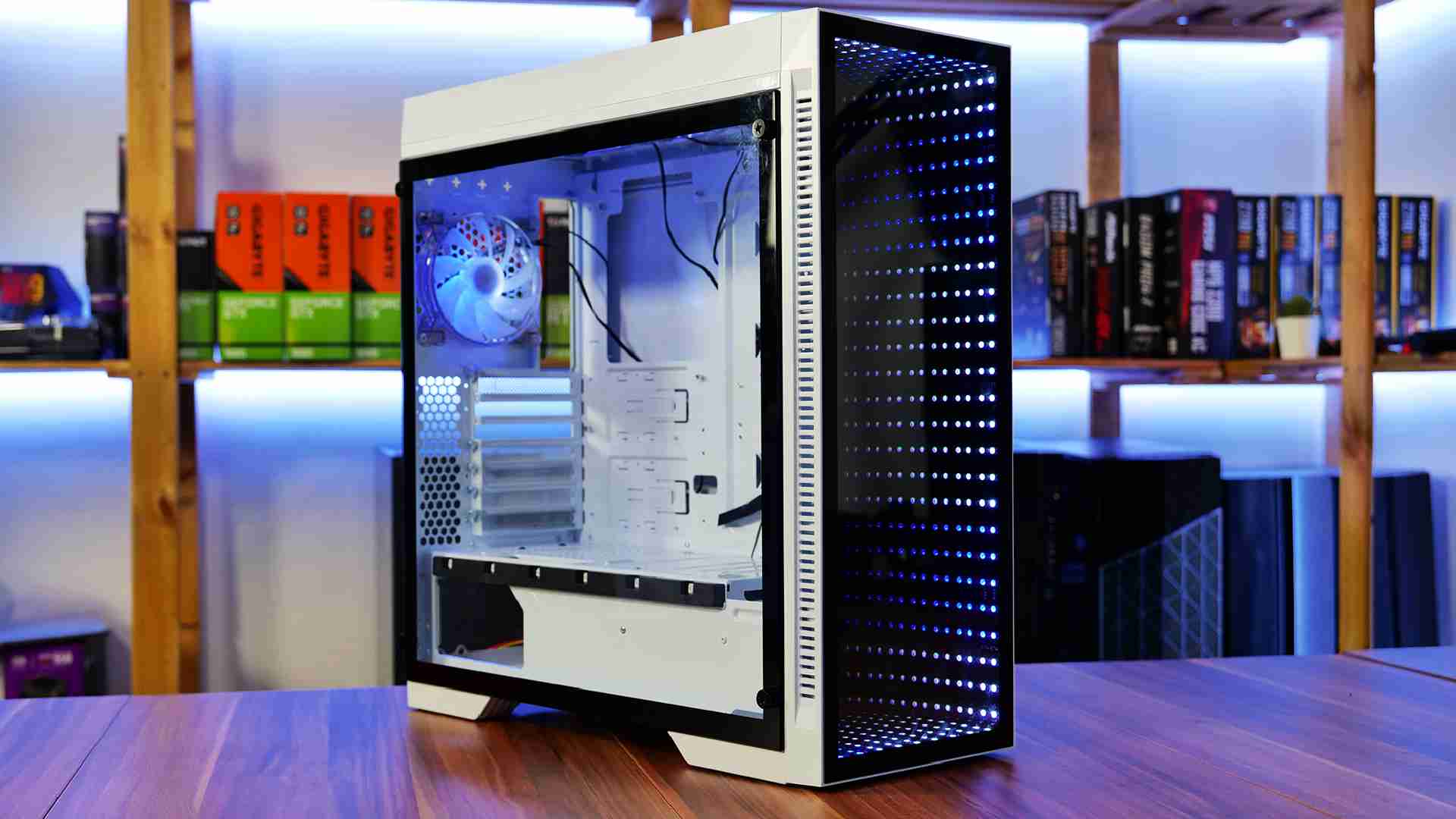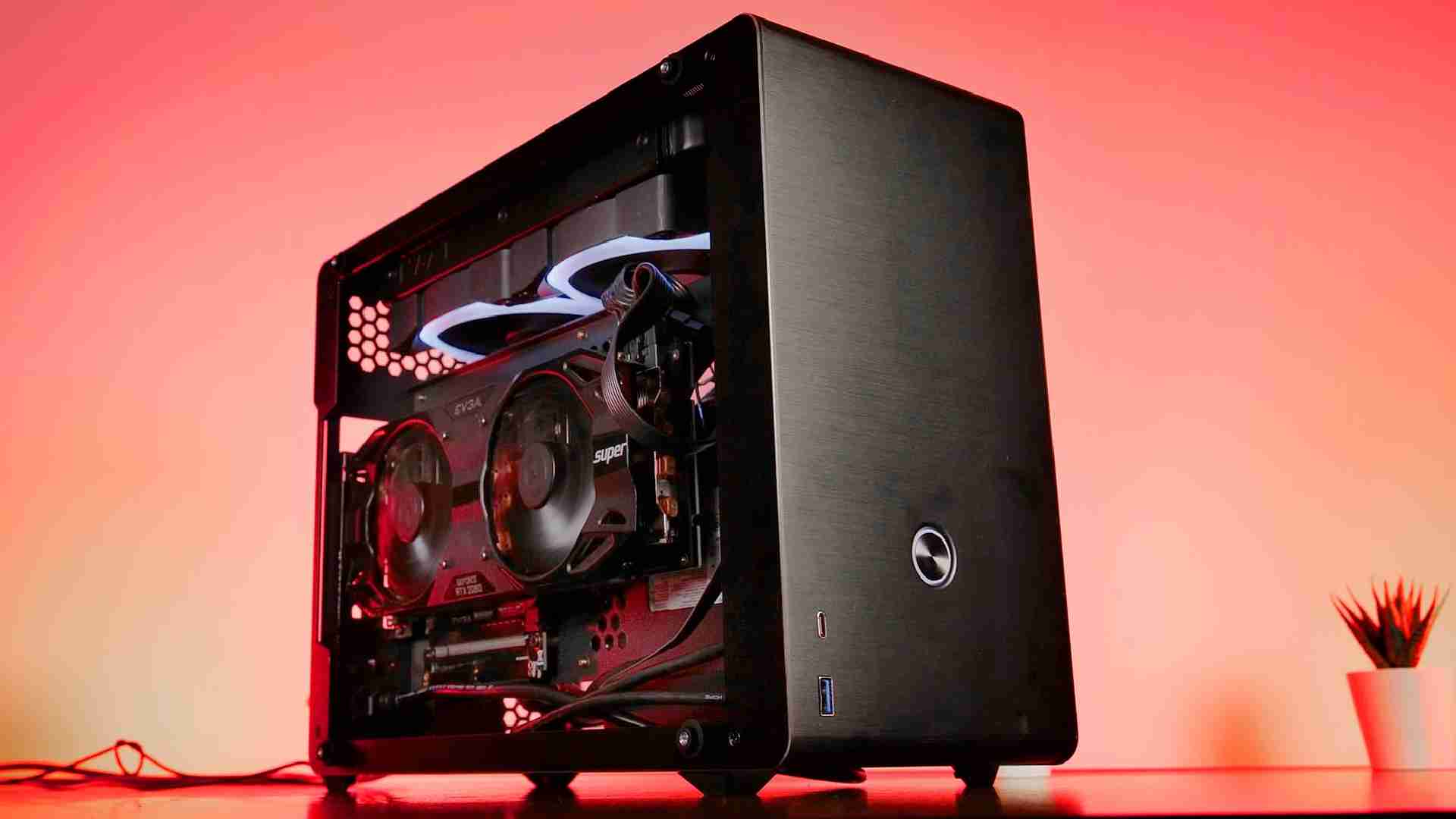be quiet! Silent Wings 4 140 High-Speed Review
Introduction
Just like the SW4 High-Speed, there is an upsized version of the perfect Case fan. Meet the Silent Wing 140mm High-Speed, whilst pushing more air thanks to its bigger form factor, this upscaled version of a monster promises to be the best case fan + 1! Let's find out if it's just as good as the competition
Positive
- Excellent Performance
- Excellent Noise-to-Performance
- Multiple Installation Methods
Neutral
- All-Black/Matt-Black Design
Negative
- The PWM header is "okay" but be quiet's could have used the same as on the Pro-line
What's in the box?

be quiet!'s newest iteration of their Silent Wings series comes in an almost identical package as the previous versions. Some imagery and specs with a grey stripe to make sure that you know you went for the high-end line.

Inside the box, the Fan is wrapped in its own smaller carton box with an additional accessories box above it.
The accessories box contains an additional pair of mounting corners and the installation hardware in form of push-pins and fan screws, more bout that in the installation section
Down below we added a summary of the Silent Wing 4 140mm High-Speed's specs:
| Name | be quiet! Silent Wings High-Speed 140mm |
| Size | 140x140x25mm |
| Speed | <=1900RPM |
| Airflow | 78.4CFM |
| Static Pressure | 2.36mm/H2O |
| Noise | <29.3dBa |
| Connection | PWM |
| Bearing | Fluid Dynamic Bearing |
| RGB | Of course not |
Installation

Installing a Silent Wings fan was always a matter of choice.
Out-of-the-box, the new Silent Wings 4 comes with the push-pin corners pre-installed. This installation mechanic is ideal to be used in a case fan scenario as the rubber on them can act as an additional damper to remove even more vibrations. In order to install the fan using this method, we simply need to position it behind or in front of the case's fan bracket and push the pins found in the accessories box through each corner of the fan. That's it...

The alternative method would be the fan-screw method. Self-explanatory as this is, we first need to replace the existing mounting edges. For this, simply grab each corner and push in the piece of out sticking plastic which unlocks the lock mechanism. From there, simply pull and they are off.

After positioning the corners on each of the edges of the fan, just push them in and proceed by installing it using the fan screws.
Appearance

Surely the biggest change between the newest and the iteration before that is the fan's overall design. With a new all-black finish with a matt-black central piece, the fan is basically all black and easily integrable into basically any build.

Although we are huge fans of these changes, the design will always be up to the end customer. The Wing design, however, is not. For the first time in a decade, be quiet! ditched their old 7- thick and slightly bent wing design that be quiet! is known for.
On the 140mm lineup, we now have the same amount of wings, but substantially thinner and bend at a much more aggressive angle. This new approach makes the fan better perform in use cases that require slightly more static pressure such as filters or strong bends and thin air inlets.

A quickly unnoticed change is that the fan is now actually round. The previous Silent Wings 3 line had an inlet and outlet in octagonal form. The new Silent Wings 4 on the other hand, is round. This change can be both negative and positive depending on how you want to look at it. The octagonal form might have helped to distribute the air more throughout the case as it might act as a funnel.

The new round shape will channel the air slightly making it directable to a specific location. A change like this might be impossible to measure, but as a front case fan in combination with an Air cooler, the round shape might be better as the air is pushed directly into the cooler fan instead of spread across the case. For exhaust, on the other hand, the octagonal design might be better as the "reverse" funnel will suck in the air through a bigger surface compared to a round design.
Benchmark

We tested the new be quiet! Silent Wings 4 High-Speed in 140mm using our usual benchmark test. While letting the fan spin at 100% of its max speed, they managed to keep the CPU at 43°C above ambient. This places it at the top of the benchmark list, but behind the 120mm counterpart. We believe that this stems from the 120mm's insane static pressure that helps it to force the air through the heatsink.

On the noise-to-performance side, compared to other 140mm fans, the Silent Wings 4 140mm High-Speed manages to perform exceptionally well. Though interesting to see that once you ramp up the speed, the 140mm version performs nearly identical compared to the 120mm version, at very very low RPM, the 140mm takes the lead and lands at the second place behind the Noctua NF-A12x25.
Conclusion

All in all, we are huge fans of be quiet!'s new Silent Wings 4 lineup. Just like the 120mm version, the 140mm version seems to be the perfect case fan, just a tick- better.

As far as quality is concerned, there is nothing negative to be said about the 140mm version. Sure we would have loved to see the same 500mm PWM cable that was used on the Pro-Line, but we are already happy with the design changes that not only ended up looking awesome, but the wing design changes also had a significant impact on performance.

In the end, we can only recommend the new SW4 line. Used as a case fan, be believe that the Silent Wings 4 140mm High-Speed is the perfect option.


Inter-Tech X-908 Infini2 (White) Review
Inter-Tech just keeps refreshing its products with a new look. Now they released their x-908 Infini2 Case in a freshly lookin
Read More
Noctua NH-L9x65 Review
Noctuas NH-L9x65 is probably the beefiest Ultra-Low-Profile CPU cooler you will find which will handle the job. Doubling down
Read More
Cooler Master Mobius 120 OC Review
After Cooler Master released the much more powerful Mobius 120P, its time for another upgrade in form of a Cooler Master Mobi
Read More
Raijintek Ophion Evo Review
If there is one thing that does not combine very well, it is a Small Factor Case and an RTX 3090. However, this does not seem
Read More